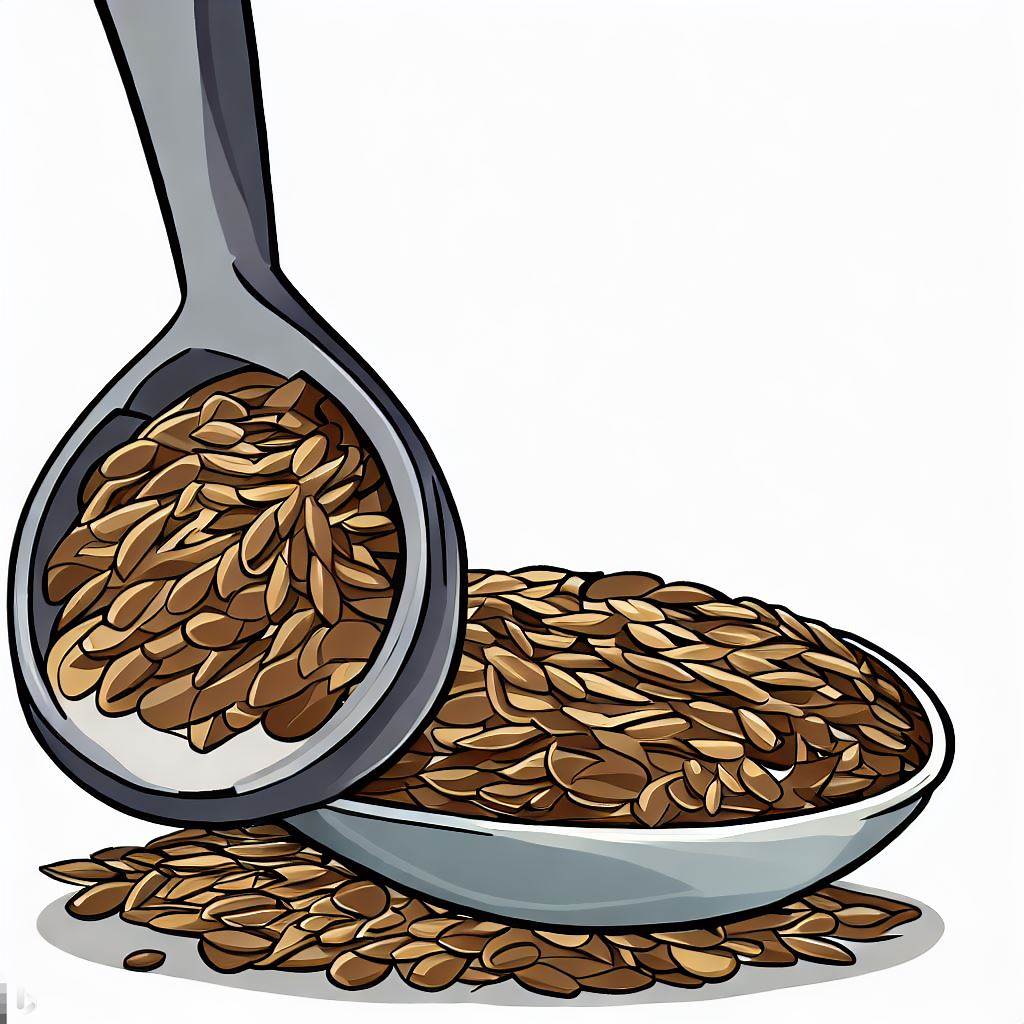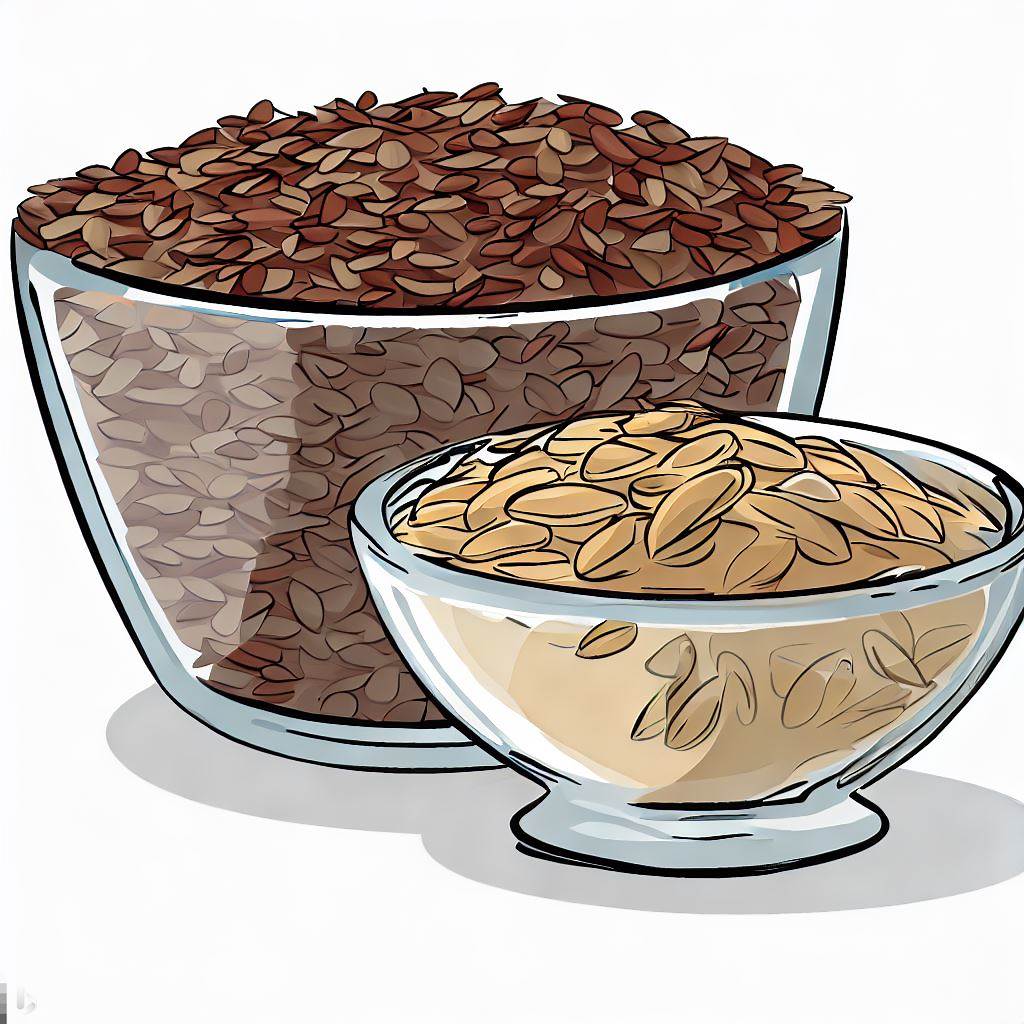Estimated reading time: 3 mins
Flaxseed, also known as linseed, is a nutrient-dense food that has been used for thousands of years for its health benefits. This small, golden or brown-colored seed is packed with nutrients, including fiber, omega-3 fatty acids, lignans, and antioxidants. In this article, we will explore the amazing health benefits of flaxseed and how it can improve your overall health.
Promotes Digestive Health
Flaxseed is an excellent source of dietary fiber, which is essential for promoting healthy digestion. The fiber in flaxseed can help to prevent constipation, reduce inflammation in the gut, and promote the growth of beneficial gut bacteria. In addition, the lignans in flaxseed have been shown to reduce the risk of colon cancer and other digestive disorders.

Helps to Manage Diabetes
Flaxseed may be beneficial for people with diabetes or those at risk of developing the disease. The fiber in flaxseed can slow down the absorption of glucose, helping to regulate blood sugar levels. In addition, the lignans in flaxseed may improve insulin sensitivity and reduce the risk of developing type 2 diabetes.
Supports Heart Health
Flaxseed is a rich source of omega-3 fatty acids, which have been shown to be beneficial for heart health. Omega-3 fatty acids can help to reduce inflammation, lower blood pressure, and improve cholesterol levels. In addition, the lignans in flaxseed may help to reduce the risk of heart disease by improving blood vessel function and reducing oxidative stress.
May Improve Brain Function
The omega-3 fatty acids in flaxseed may also be beneficial for brain health. These essential fatty acids are important for the development and maintenance of the brain, and may help to improve cognitive function and memory. In addition, the lignans in flaxseed may have neuroprotective properties, helping to protect the brain from damage caused by oxidative stress.
May Help to Reduce Cancer Risk
The lignans in flaxseed may also help to reduce the risk of certain types of cancer. These compounds have been shown to have anti-cancer properties, particularly against breast, prostate, and colon cancer. In addition, the fiber in flaxseed can help to reduce the risk of colon cancer by promoting regular bowel movements and reducing inflammation in the gut.
May Reduce Menopausal Symptoms
Flaxseed may be beneficial for women going through menopause. The lignans in flaxseed have been shown to have estrogen-like effects, which may help to reduce hot flashes and other symptoms of menopause. In addition, the fiber in flaxseed can help to regulate bowel movements, which can be disrupted during menopause.


How to Incorporate Flaxseed into Your Diet
Flaxseed is a versatile food that can be easily incorporated into your diet. Here are some ideas for adding flaxseed to your meals:
- Add ground flaxseed to your breakfast cereal or smoothie.
- Mix ground flaxseed into your pancake or muffin batter.
- Use flaxseed oil in salad dressings or as a cooking oil.
- Sprinkle ground flaxseed on top of yogurt or oatmeal.
- Use ground flaxseed as a replacement for eggs in baking recipes.
- Mix ground flaxseed into ground meat for burgers or meatballs.
Precautions When Using Flaxseed
Although flaxseed is generally safe to consume, there are some precautions to keep in mind. Here are some things to consider before incorporating flaxseed into your diet:


- Start with a small amount of flaxseed and gradually increase your intake to avoid digestive discomfort.
- Drink plenty of water when consuming flaxseed, as it can absorb water and cause constipation if you are not adequately hydrated
- Talk to your healthcare provider if you are taking any medications, as flaxseed may interact with certain medications.
- Pregnant and breastfeeding women should consult with their healthcare provider before consuming flaxseed, as it may have estrogen-like effects.
- People with a history of digestive issues, such as inflammatory bowel disease, should also consult with their healthcare provider before consuming flaxseed.
Conclusion
Flaxseed is a nutrient-dense food that has been used for thousands of years for its health benefits. It is a rich source of fiber, omega-3 fatty acids, lignans, and antioxidants, which may help to improve digestion, regulate blood sugar levels, support heart health, improve brain function, reduce cancer risk, and alleviate menopausal symptoms. Flaxseed is easy to incorporate into your diet and can be added to a variety of dishes. However, it is important to start with a small amount and gradually increase your intake, and to consult with your healthcare provider before consuming flaxseed if you have any concerns or medical conditions. By adding flaxseed to your diet, you can reap the many health benefits of this amazing superfood.
